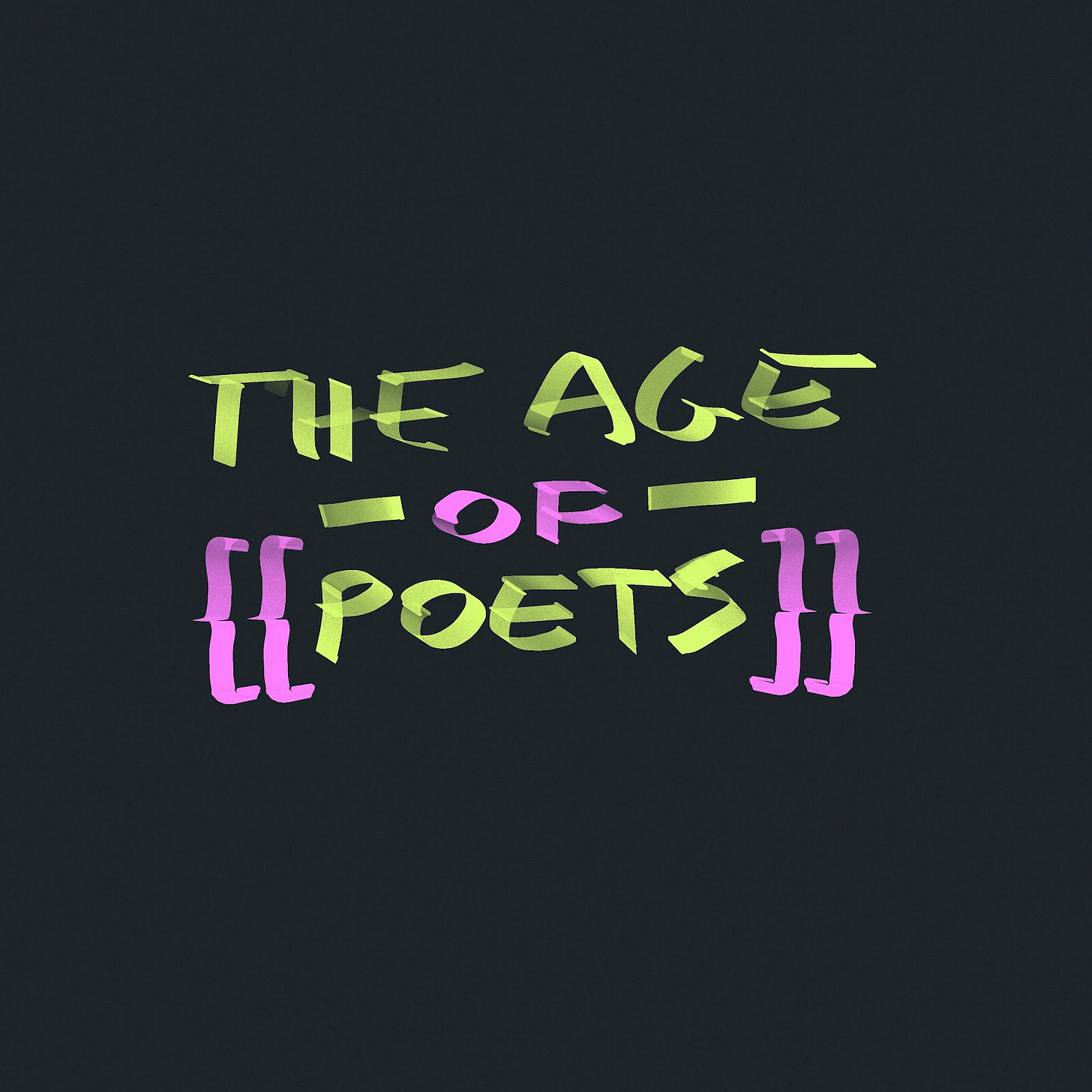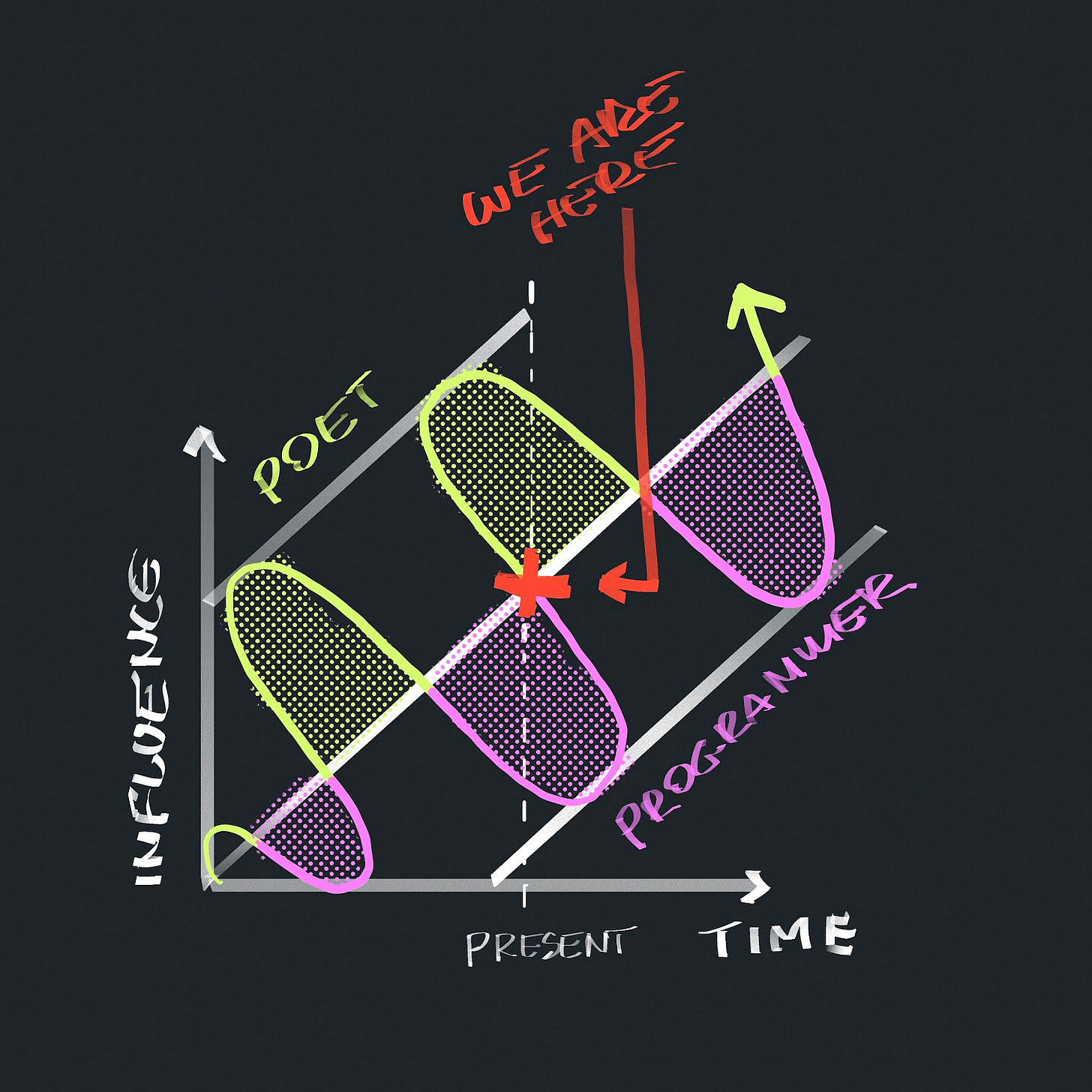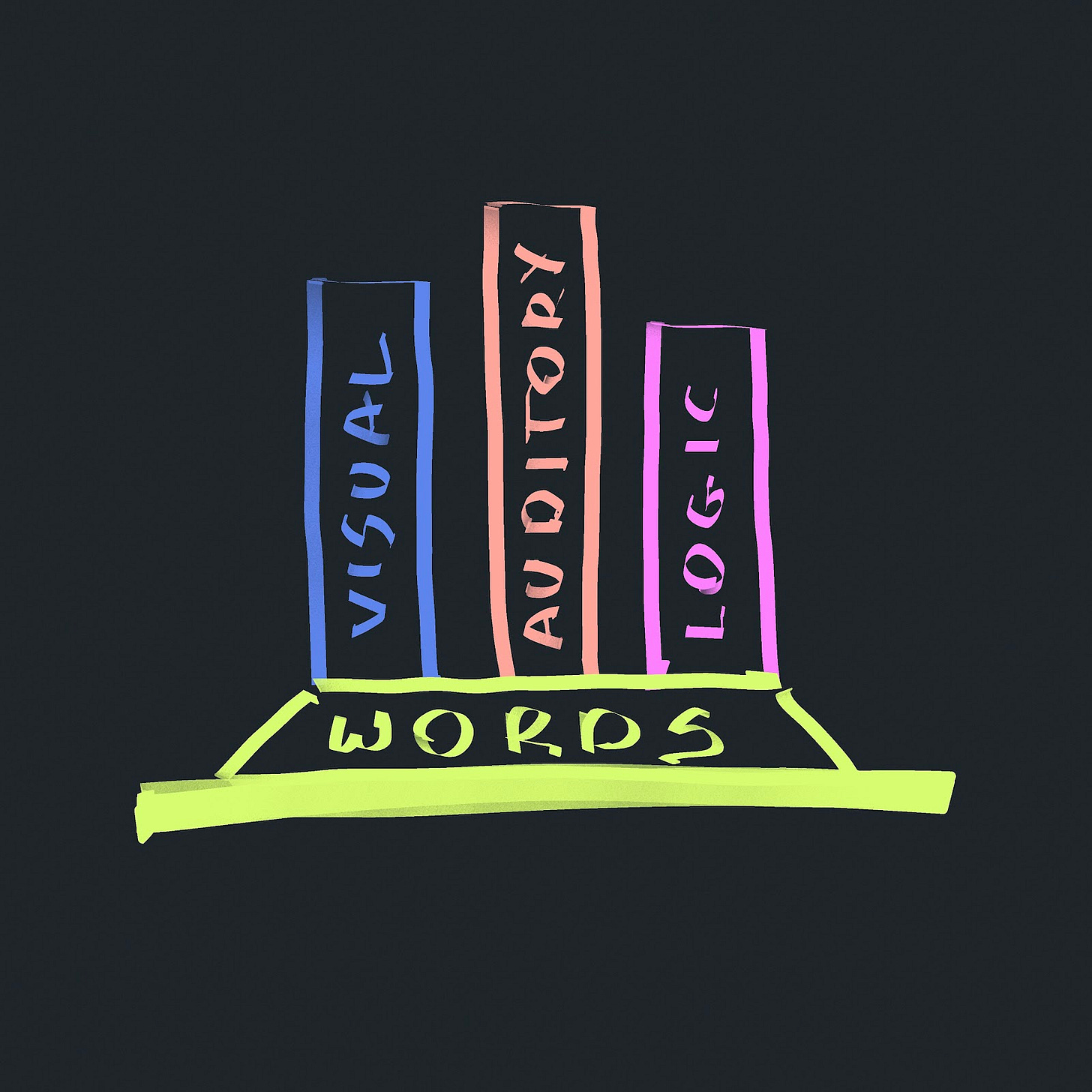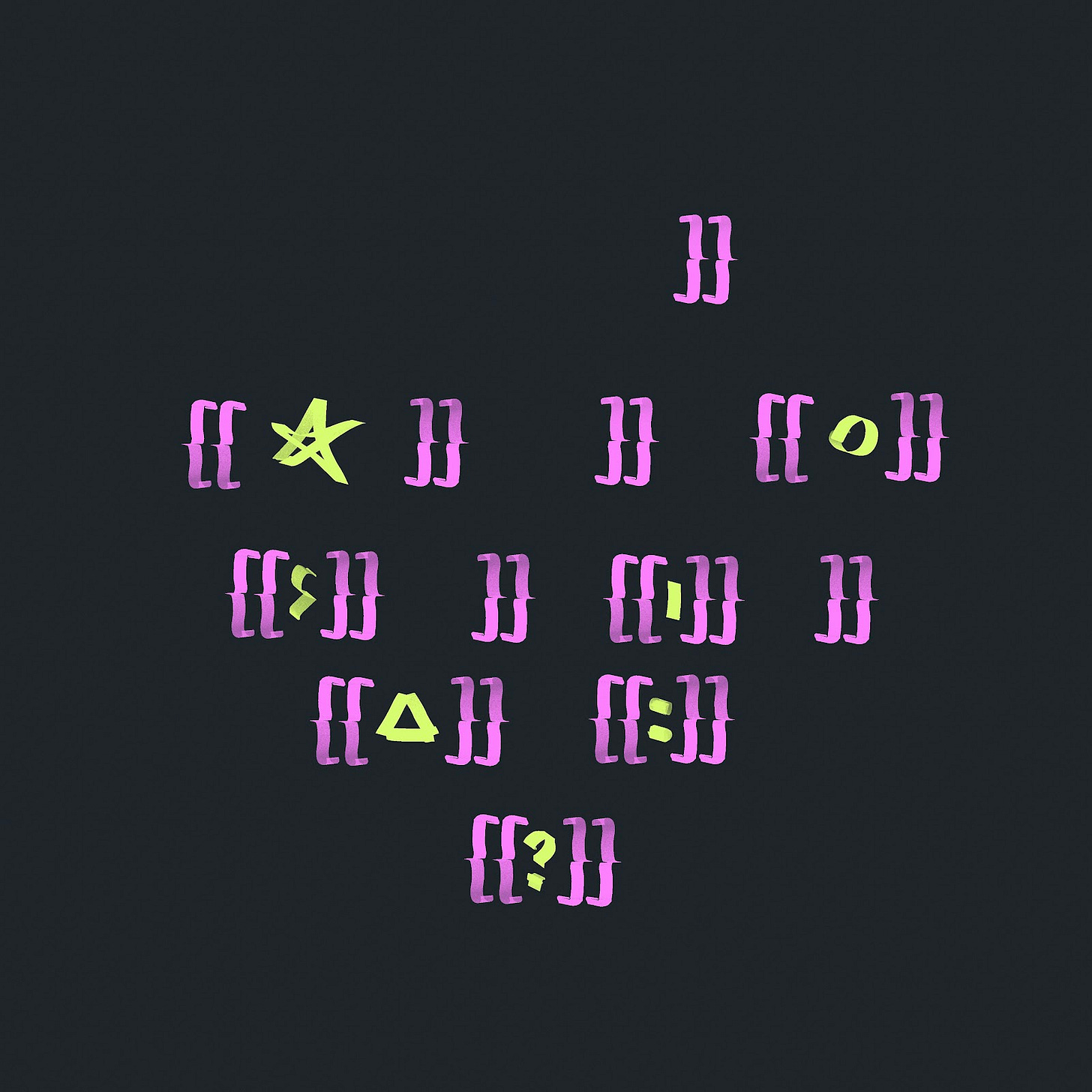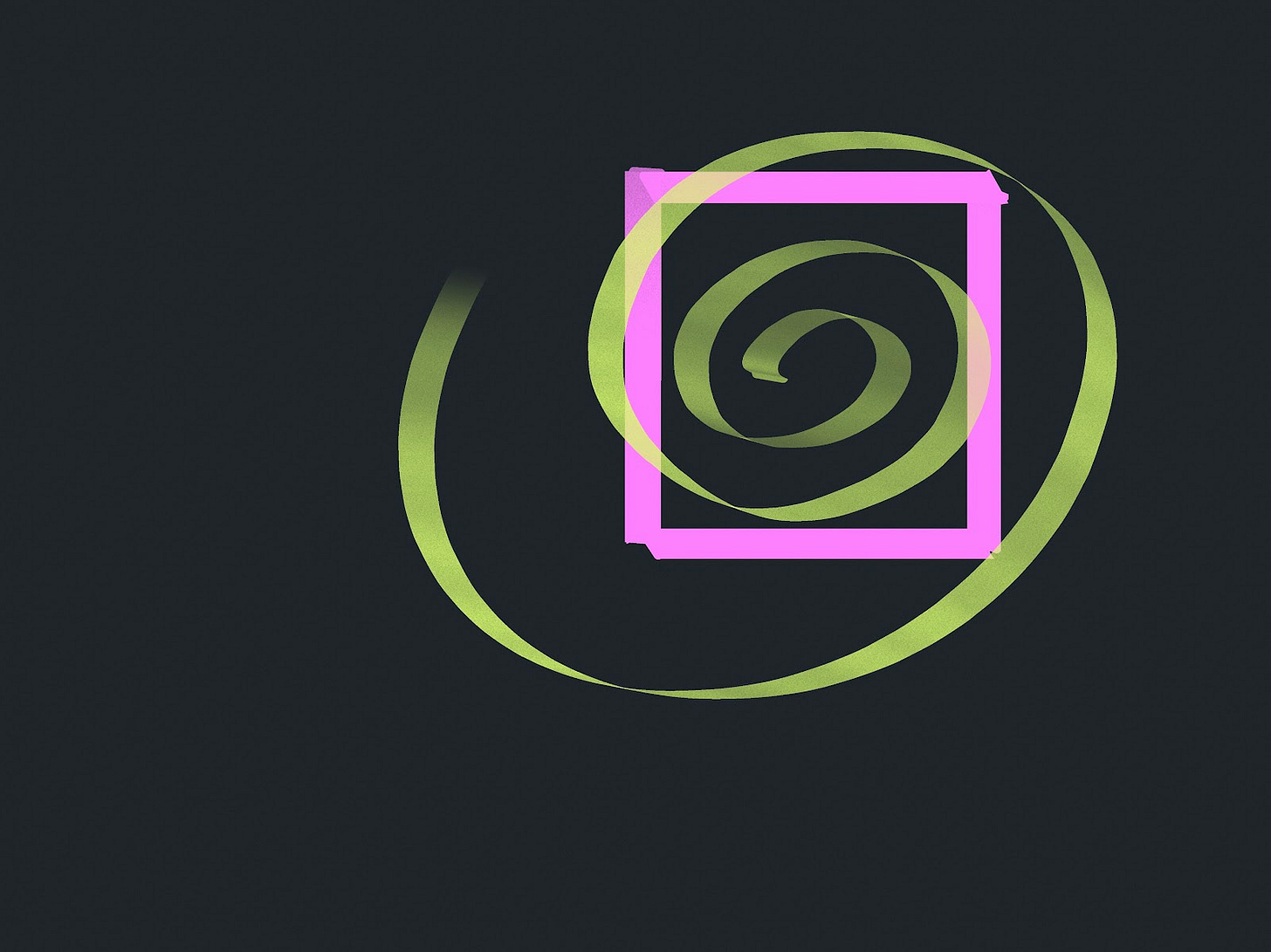The age of poets
When words build worlds
We are entering the age of poets. In a world where words create reality through prompts and patterns, those who master language will shape our digital future. The programmer's reign gives way to the poet's vision — here's why this profound shift matters and how to prepare yourself for this new creative renaissance.
The age of poets
Behold the poet, with pale skin
and delicate fingers.
Typing with each keystroke
entire worlds into existence.
-
The left hemisphere knows its reign
is over and total control dwindles.
As the light of meaning burns bright
ushering the end of mind persistence.
-
Say farewells to your emissary
saving yourself from a disaster.
Welcome back the right hemisphere
the only rightful master.
You will encounter many words that start with the 'p' letter across this piece. Patterns, poets, programmers, prompts, progress — these are all purposeful. There are no coincidences.
Path to progress
All the signs on earth and under the sun point to an unmissable conclusion. The age of the programmer is over.
Due to technological advancements, engineers lose their edge. And it's quite paradoxical — after all they themselves are the ones that brought this change about by devising LLMs.
Before going any further I want to refrain from making any value judgments here. In other words — I can't say if the change is good or bad. All I know is that it's different. And I stand by the Kha'Zix notion that — change, any change is good. So what change am I talking about exactly?
I believe that we are entering a new age. Where almost everyone can intuitively design digital images, sounds, even entire products. An age bursting with unbound creativity. The age of poets.
When we take a look at the history of human progress, we can appreciate its cyclical nature. Peace and prosperity times are followed by tumultuous eras. From the tumult and chaos — the stable eras emerge. And it goes round and round. The ever-dance of the opposites.
This cyclical pattern mirrors what psychiatrist Iain McGilchrist identifies as the hemispheric dialectic — the grand oscillation between epochs dominated by the left brain's analytical precision and eras illuminated by the right brain's holistic understanding. For centuries, Western civilization has swung like a pendulum between these neural territories. The left hemisphere deconstructs, categorizes, and mechanizes. It gave us industrialization, computation, and the digital infrastructure that powers our modern world. The right hemisphere, meanwhile, contextualizes, synthesizes, and finds meaning. It gifts us with art, spirituality, and the ability to perceive the living wholeness of experience.
Our current technological paradigm represents the culmination of left-hemispheric dominance — a world optimized for efficiency, measurement, and utility. The programmer archetype embodies this mode perfectly: breaking reality into discrete, manipulable chunks of logic. But as McGilchrist warns, when the "emissary" (left hemisphere) usurps the rightful "master" (right hemisphere), we lose something essential. We gain precision at the cost of wisdom. We optimize processes while losing sight of purpose. The path to true progress requires not the triumph of one hemisphere over the other, but their reintegration — the marriage of precision and wisdom.
If we zoom in on this millennium we can observe that human progress has been mostly driven by the programmers. After all, they were the ones that know how to create something from nothing, right? They were, and still to a great extent are the magicians of our times.
Or are they really?
Well, not necessarily. Something else is at work here. The democratization of creative work drives a subtle but substantial change. A change, by the end of which — the myth of a programmer will eventually be replaced by the myth of a poet. Let's see how that might come about.
Democratization
Never before has the verbal been so easy to transform into visual.
Let's take a quick look at what's currently happening in the genAI space. The verbal is seamlessly translated into visual — using tools like Midjourney or Stable Diffusion. Creating images has never been easier — you just launch any browser, type in some words, and pop the image appears on the screen. Painting with words? — checked.
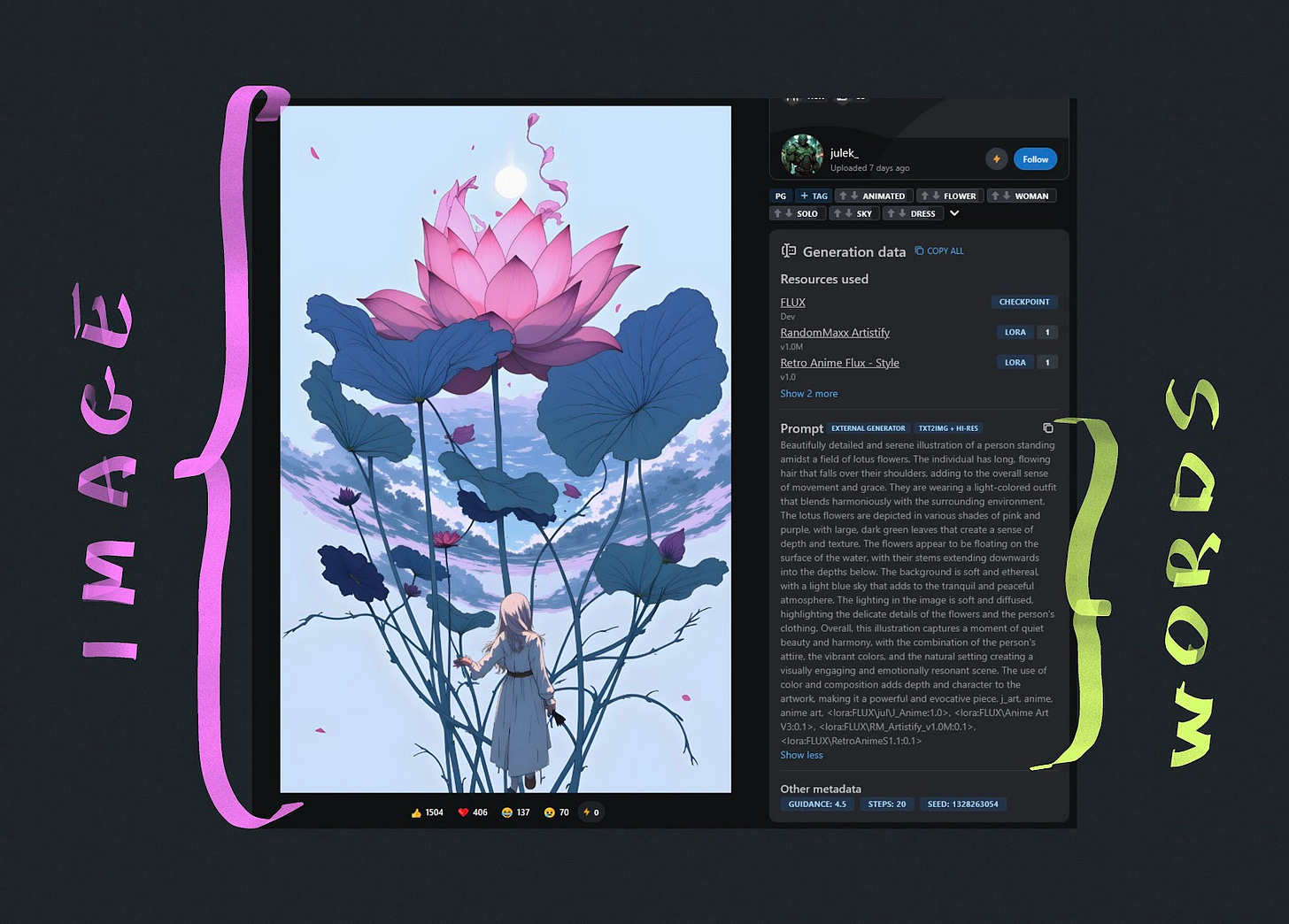
The same is true in the auditory domain. 11Labs enables you to generate any sound imaginable from a text prompt. Creating sounds with words? — checked.
If the above examples are not visible enough clues for what an exciting time we are about to enter — I don't know what is. Creating pretty pictures or fart sounds is cute and all, but there's more to that than meets the eye.
Folks at Anthropic have been able to develop a model that codes exceptionally well. These systems work because code is essentially a bag of words, some syntax rules, and a bit of creativity. Building software with words? — checked!
Code is different from the visual or sound domain. Code is a digital version of motion. And it's especially interesting, because it enables us to shape the world. It can start things up and stop them. When writing code we can create objects that behave in a certain way and have a life of their own.
Another aspect which sets code apart from the visual and sound is that we can make the code act on our behalf. As a matter of fact, that's one of its essential use cases. I would even dare to say that code is the closest we have yet come to automate and actuate the reality.
But there is a problem.
The problem with code is that for as long as it has been around (181 years) - it has been an arcane knowledge to know how to write it. And to do it well. Staying beyond the reach of most of the population, this lingua creativa of our times has been spoken only by the few.
Well it seems that the barriers are dissolving. The tide turns. Very much thanks to the explosion of digital tools mentioned above. You don't need to be an illustrator to illustrate, or sound designer to create sounds. And you don't need to become a coder to build stuff.
If the written code is the expression of a programmer's desire — then the prompt will become the expression of a poet's dreams.
Prompting
The way to interact with these revolutionary LLM systems is through prompting – and it's not going to change for the foreseeable future. Prompts will stay as the main interface between the human and the machine. That's because for you and I — it's easy and natural to speak. And to provide commands using speech. The universal language is the tool of the trade here. And you don't need to learn to use language — you have been using it since you were 1 year old.
When we look closely, we can notice a pattern emerging. The pattern points to the words. You see, words are the base layer for all these systems. Using english, polish or japanese words — you describe what you want, and most of the time you get what you asked for. We begin to use words as tools (which they have always been btw).
What does it mean in practice?
It means that words are the new hammer and chisel for an emerging class of individuals. I call these individuals — verbal sculptors.
Verbal sculptors use verbal instructions to describe what they want to get built. And the generative AI politely obeys and builds the thing. What's more, with every next iteration of these tools, our sculptors enjoy increasingly easier-to-use interfaces. I haven't ever seen simpler workbenches for creative work. You basically split the workbench in half, the first one is the chat window the second half is a preview of the prompt result. The output is generated live, often in an instant.
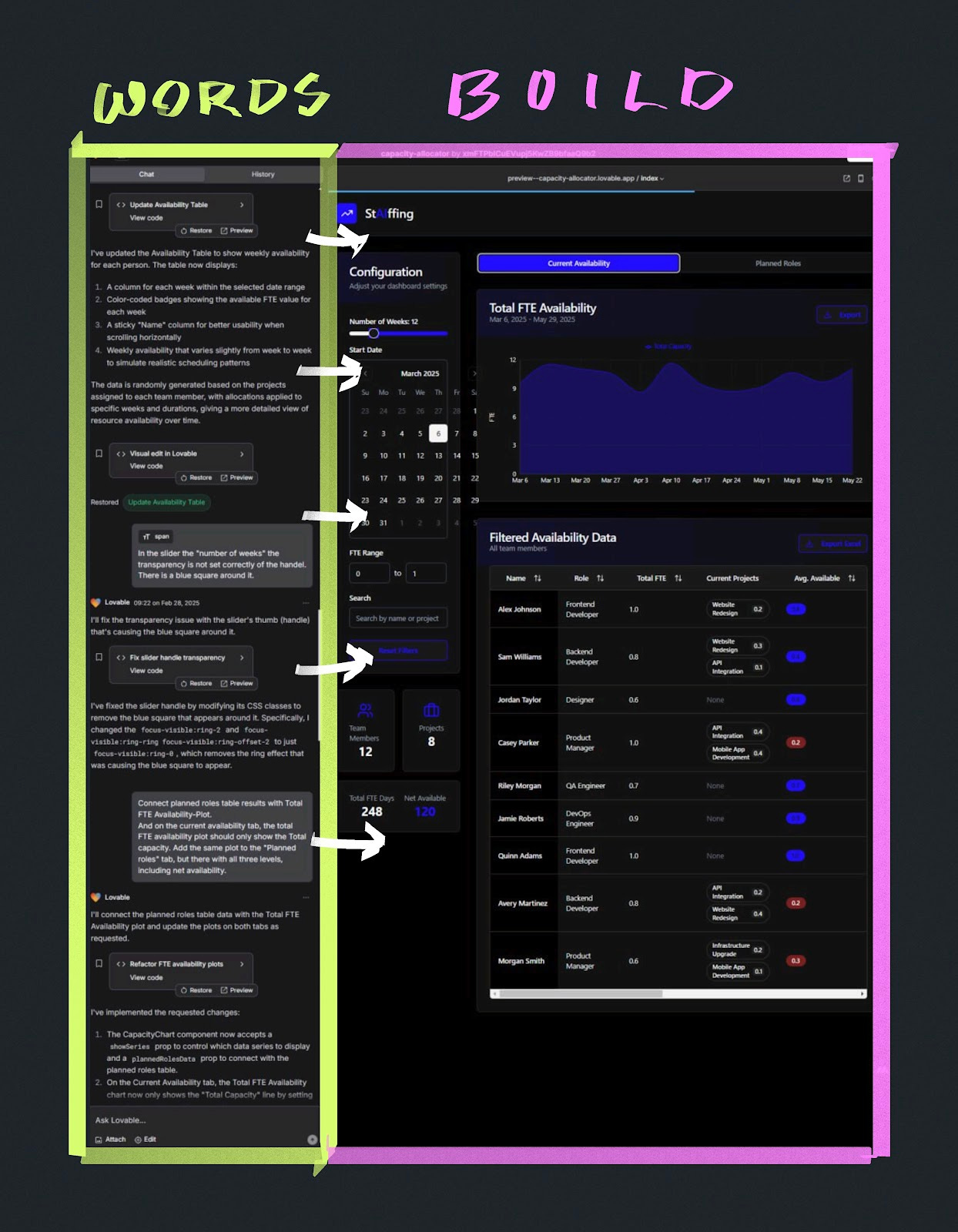
Even though the outputs are truly remarkable — let’s focus on the left column, the input. Here, a simple yet powerful dynamic rule shines — the quality of the input, impacts the quality of the output.
Vocabulary
Words are mightier than swords.
There's a correlation between your word lexicon and the quality of the prompt. And the quality of the prompt impacts the quality of the output.
That's why your ability to use words to communicate ideas and concepts has never been more important. Honing this ability will extend our agency and impact in the digitalized world of the future.
Using natural language to effectively communicate with thinking machines will become a norm. Some people already have more daily conversations with artificial systems than with humans. Moral questions aside, if you want impact, you will need to learn how to speak with machines so that they understand exactly what you want.
When we tie together the explosion of genAI tools with people's ability to clearly articulate their desires — we get a potent mix indeed. Beautiful things will be created using even more beautifully crafted words, relationships, and contexts. Why? Again, because of how these LLM systems are built now. They rely on prompts.
Prompts rely on words.
Words rely on people.
People rely on their individual lexicons, and abilities to select context-appropriate terminology.
The last sentence about people is a mouthful, I know. That's why let's try to simplify. How else could we describe these creative people? Well, poets.
The age of poets
Among all different professions and crafts – who are the masters of words?
Poets are masters of words. Poets are the people who heavily rely on their individual lexicons in their craft. Poets are also sensitive, introspective, bordering between naive idealism and cynical realism. Trying to have no illusions and still hold the inner flame.
Poet vs Machine
What separates human poets from machine outputs isn't technical skill — it's lived experience. When a poet crafts a story about heartbreak, triumph, or longing, they pull from the well of their own existence. They've felt their heart pound with anxiety, known the weight of grief, or experienced the weightlessness of joy. These aren't merely concepts to be analyzed but visceral realities etched into their being.
This is precisely why AI-generated stories, despite their technical brilliance, often lack that ineffable quality we call soul. The machine hasn't stood beneath a starlit sky wondering about its place in the universe. It hasn't felt the sting of rejection or the warm embrace of belonging. It hasn't lived.
Yet paradoxically, in this new age, poets will collaborate with these soulless machines to produce work of unprecedented power. The poet provides the lived experience, the emotional truth, the perspective — while the machine amplifies, extends, and manifests these human insights into digital form. This partnership doesn't diminish the poet — it elevates them to creators of worlds.
Names also matter
While ‘wordsmiths’ might precisely describe these verbal architects, it sounds too elitist for what we're witnessing. This is, after all, the democratization era. So I'll stick with ‘verbal sculptors’ — more approachable, more tactile, suggesting that anyone can learn to mold meaning with their words.
Poets as prototypers
Poets that lead with words will born creations that take people places. Places where pen and paper couldn’t possibly take us.
Poets and prototypers have a lot in common. They are both crafty, creative and immensely curious.
Words will enable poets to become builders, designers, musicians, cross-domain artists, revolutionaries. Poets will expand out from their traditional niches of pen and paper into a PC and prompt.
There's no way to tell the future, but we can only hope that if we are lucky, more people will begin to see the value of cultivating the poet within. And it's a good start.
The vibe-coding phenomenon
Vibe coding represents perhaps the purest expression of the poet-programmer fusion — where intention and feeling trump technical knowledge. Born in early 2025 through Andrej Karpathy's observations, vibe coding permits even complete novices to conjure functioning software through conversation rather than compilation.
The practice embodies a profound shift: the programmer no longer needs to understand every piece of the system they're creating. Instead, they communicate desires and intentions – the ‘vibe’ they want the software to embody — and AI translates these poetic impulses into functional code.
‘It's not really coding, (…) ‘I just see things, say things, run things, and copy-paste things, and it mostly works.’
Andrej Karpathy
This approach democratizes creation in unprecedented ways, allowing journalists like Kevin Roose to build personal software tools despite having no formal coding training.
Yet vibe coding's revolutionary potential comes with significant cautions. The separation between creator and creation — the lack of understanding in what's been built — raises questions about accountability and reliability. When something breaks, who fixes it? When something behaves unexpectedly, who's responsible?
This tension between creative freedom and technical understanding defines our current moment. We gain the power to manifest digital creations through pure expression, but potentially sacrifice deeper knowledge of how our creations function. The poet creates, but may not fully comprehend their creation — a challenge we must navigate as we move deeper into this new age.
Becoming a digital poet
The shift toward poetic creation isn't merely theoretical — it's happening now, and it demands new skills and mindsets. To thrive in the age of poets, consider these practical steps:
1. Expand your lexicon
Words are your primary material now. Like a painter with pigments or a sculptor with clay, your vocabulary determines what you can create. Read widely across disciplines. Study etymology. Learn technical terminology alongside poetic language. The broader your vocabulary, the more precise your prompts can become.
2. Master descriptive language
Beyond individual words, practice describing complex systems, emotions, and relationships. Can you articulate exactly what makes a design feel ‘playful’ or ‘authoritative’? Can you explain the workflow you envision without resorting to technical jargon? This descriptive fluency translates directly to prompt effectiveness.
3. Develop your prompt patterns
Different generative systems respond to different prompting techniques. Experiment methodically. Document what works. Build your personal prompt patterns — reliable templates you can adapt for different creative contexts. Think of these as your poetic forms.
4. Build your wordstack
Just as programmers have their tech stack, poets need a wordstack — the combination of tools, metaphors, frameworks, and references that form your unique creative signature. Your wordstack might include visualization techniques, rhetorical devices, and conceptual models that help you consistently produce powerful prompts.
5. Practice domain synthesis
The most potent creativity happens at the intersection of domains. My Domain Synthesis course specifically addresses this crucial skill — the ability to connect concepts across fields, generating insights and approaches unavailable to those working within a single discipline. As barriers between specialties dissolve, those who can synthesize across domains will lead the poetic revolution.
The goal isn't to replace technical understanding with poetic intuition, but to combine them. The most powerful creators will understand both the prose of how systems work and the poetry of what they might become.
The age of oppression is over
We drink to our youth to the days come and gone
For the age of oppression is now nearly done
We'll drive out the empire from this land that we own
With our blood and our steel we will take back our home.
Age of Oppression - Malukah
For too long we, as species — have been subjected to the oppression of the left brain hemisphere. Time to revolt.
The progression from programmer to poet isn't just technological — it's neurological. It represents a rebalancing of our collective consciousness, a return to the integrative, metaphorical right-brain thinking that defined human creativity for millennia before the analytical left brain ascended through industrialization and digitization.
As we enter this new age, we don't abandon logic and structure, but rather reconnect them with intuition and meaning. The poet doesn't replace the programmer — they transcend and include the programmer's capabilities, adding the dimension of felt meaning that makes creation truly human.
The revolution has already begun. The question is: will you join it?



